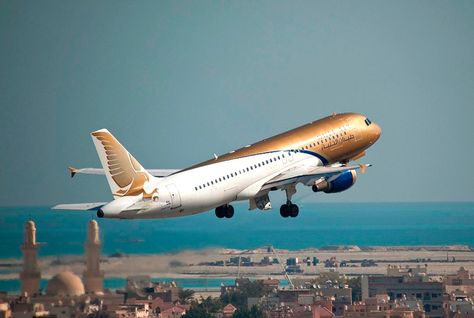Gulf Air reinstated 79 employees who had been dismissed for unauthorised absence from work following guidance from King Hamad bin Isa Al Khalifa and instructions from Labour Minister Jameel Humaidan, Bahrain’s state-owned airline said in an emailed statement Wednesday.
This brings the total number of reinstated staff to 136, the company said. The 79 employees will be notified from next week and may return to work before the end of the month, the statement said.
The state-backed carrier said earlier this month it was prepared to reinstate 122 staff that it dismissed due to absence during anti-government protests and was in legal talks with employees.
“There are still a few legal things going on but, yes, we are evaluating cases and, depending on the facts and the figures, hiring back. We dismissed people not because of the political events but because of absent days,” Karim Makhlouf, chief commercial officer at Gulf Air, told Arabian Business.
Bahrain in March imposed martial law and called in troops from its Gulf neighbours in a bid to quell weeks of unrest amid mass pro-reform demonstrations.
The Ministry of Labour said Aug 18 that 2,463 employees had been dismissed since the start of the anti-government uprisings. More than 1,000 dismissal cases remained pending with no agreement on their legal status with their employers, the ministry said.
Bahrain’s Labour Law allows a firm to dismiss a worker if he or she has been absent “without reasonable cause" for more than 20 days in a year, or more than ten consecutive days.
Gulf Air in August announced a trio of new routes to Rome, Entebbe and South Sudan and said it would increase its flights to the UAE in a bid to grow its local business.
Gulf Air plans to increase the number of weekly flights to Dubai from Bahrain to 14 and add an additional seven flights to Abu Dhabi.
The airline said it had been forced to push back its break-even point to mid-2013 from 2012 after political unrest in Bahrain slowed tourism to a trickle.
“February and March we had a passenger drop - a significant one – of about 15-20 percent, which is normal if you stop flying to two countries,” said Makhlouf. “We were hit but we compensated as of May, June and especially July quite impressively.”

| Advertisement |









 Search our database of more than 2,700 industry companies
Search our database of more than 2,700 industry companies









